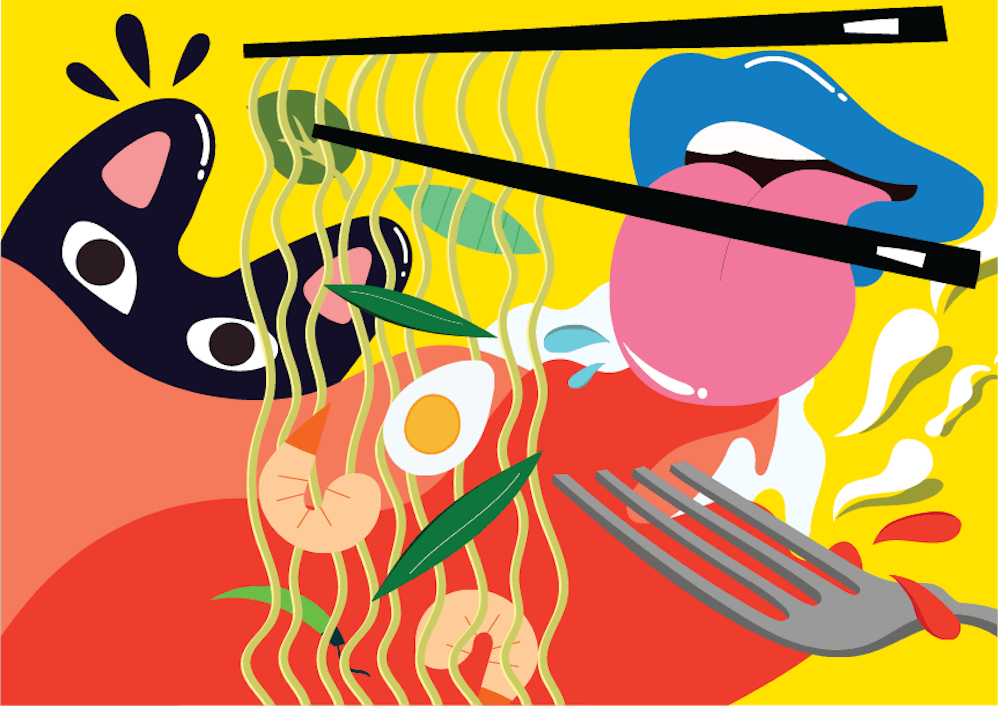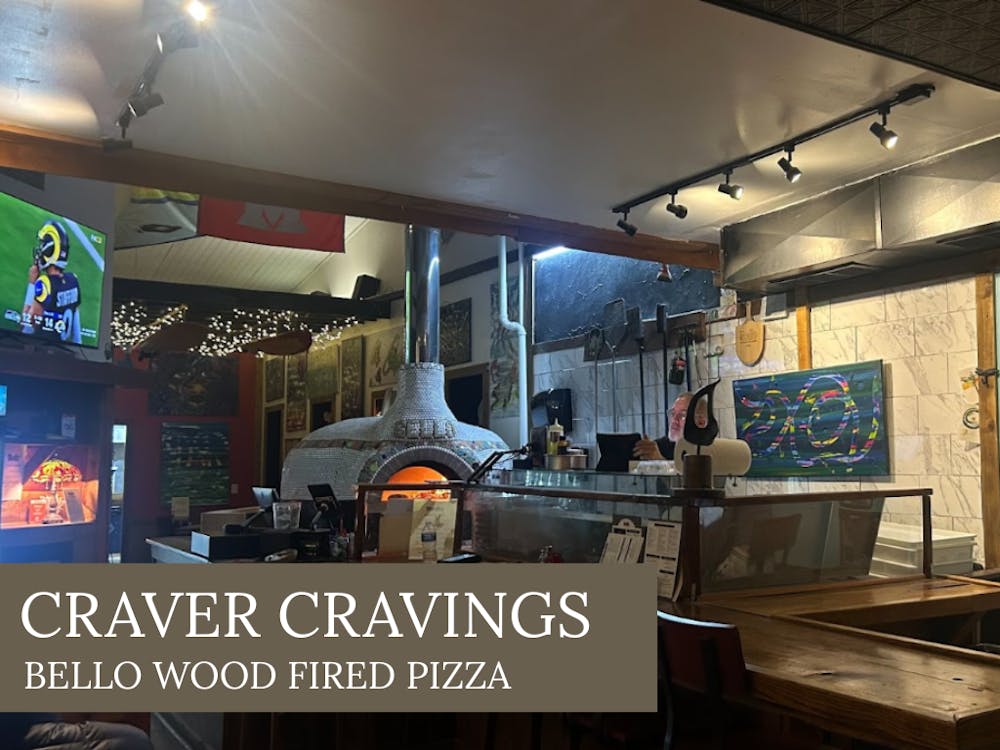Wei Deng woke up each morning last spring to go to his 8:30 a.m. class. He sat among other Miami University students learning about international politics. After the course ended at about 10 a.m., he was done with classes, but his day was only just beginning.
Deng drove over to his job at Millions of Milk Tea, a bubble tea restaurant on Locust Street, near Dunkin. Deng didn’t just work there, though.
He owned the store.
As a senior in college, Deng owned two businesses in Oxford. The first, a hair salon called Huaqi, which he bought with help from his parents. They didn’t support his goals of owning his own company, seeing it as trivial, but they eventually gave in and loaned him the money.
“It is so boring in Oxford,” Deng said as his reason for why he wanted to open businesses.
The hair salon became successful, and Deng made enough money to open his second business — a franchise of a bubble tea chain called Millions of Milk Tea — without any parental help. Bubble tea was developed in Taiwan and later became popular in China as well. Each city in China has its own flavors and traditions regarding bubble tea.
Deng loved the taste of the drink and wanted to introduce it to Americans, so he chose Millions of Milk Tea as his second business endeavor. The store was originally developed in New York and has two other locations in Cincinnati.
Deng’s Oxford location opened on April 2, 2019, and has already surpassed Deng’s goals, selling about 400 cups a day.
Deng employed other Chinese international students to help run the store. His partner in the bubble tea business, Ziheng Wang, is a sophomore student at Miami. Wang did not respond to requests for comment.
Wang took over the business once Deng graduated last spring.
Across town from Millions of Milk Tea sits a Chinese restaurant, Phan Shin. Upon entering, visitors are greeted by Chinese imagery like dragons that dance across the side of the counter.
Enjoy what you're reading?
Signup for our newsletter
The woman behind the counter warmly welcomes all who enter.
Yvonne Lin and her husband, John, have owned Phan Shin since 2008, when they bought it from a previous owner. Her husband didn’t finish high school. All he knew how to do was cook, so they decided to open a restaurant.
They heard about Phan Shin being sold in Oxford soon after they married. They saw it as the perfect opportunity and a great place to raise a family. Yvonne runs the front of the restaurant, answering phones, coordinating waiters and seating customers. John handles the cooking and manages the back.
“[Buying the restaurant] was scary,” Yvonne said. “I wasn’t sure if we would make it, if people will like it.”
Yvonne and John work seven days a week for 13 hours each day. Whenever the restaurant is open, they are there, managing the employees in a hands-on way.
“It’s a family restaurant,” Yvonne said. “I like to be there for a personal touch.”
They closed for a year and a half for renovations and just recently reopened in November 2018. When they closed, 11 other Chinese restaurants served Oxford. Now there are 16.
At the last census in 2010, Oxford, Ohio had a population of 21,371. Six point eight percent of the city was Asian. According to Miami’s Office of Institutional Research, the university’s Chinese population has increased by 2000 students in the last 10 years. This has led to a surge in Chinese restaurants as well.
Chinese restaurants make up almost 20 percent of the total dining options in Oxford, which includes the Uptown area, where students mainly eat, and the surrounding areas inside the town lines. Currently, Oxford has 16 Chinese dining options, with two more scheduled to open in the coming months.
Oxford’s economic development director, Alan Kyger, said people don’t have to approve their business with the city before opening. As long as they follow restrictions and can afford the rent, the city has no control over who leases open storefronts.
He also said a lot of the Chinese businesses lease new buildings and “finish them out” by installing kitchens and bathrooms. This helps the city because even if a restaurant doesn’t last long, the next person who leases that building doesn’t have to pay as much since the inside is already finished.
Many of these restaurants, like Millions of Milk Tea, are opened by students during college or after they graduate. Because of this, they have a high turnover rate, many staying open for only a few years before changing owners or closing altogether. Of the 16 Chinese restaurants currently in Oxford, only two of them have been open for more than a decade.
“The turnover is more rapid than I can track,” Kyger said. “My list is obsolete as soon as I type it.”
Kyger couldn’t cite exact data but has noticed a trend with Chinese restaurants closing down or changing owners more frequently than other dining facilities. Two of the businesses, Dim Sum and Rice House, opened in July and September of 2018 respectively and are both already on their second owner.
Kyger said Tea Cha House, another Chinese restaurant, is on its fifth owner in six years.
“My speculation is because often some [of the restaurant owners] are associated with Miami, so they’re here a short period of time,” Kyger said. “Oftentimes since they’re international, they may be here for a shorter period of time [before going back to China].”
At Phan Shin, Yvonne sits on her phone talking to a customer who is placing a to-go order but isn’t sure what she wants. The customer had a dish she liked the last time she came to the restaurant, but she can’t remember what it’s called.
“Was it spicy?” Yvonne asks, then listens into the phone. “Well, you can put that sauce on anything. That doesn’t help. What kind of meat did you have?”
The woman doesn’t remember, but after five minutes of going back and forth, they settle on a dish that may have been the one she tried last time.
Among the increasing number of Chinese restaurants in town, Yvonne cites her customer service as something that sets Phan Shin apart.
“I try to make them happy,” she said.
When Yvonne bought Phan Shin in 2008, Wild Bistro was the only other Chinese restaurant in Oxford, which opened that same year. Before that, Phan Shin was the only place selling Asian food.
“Some [of the owners] want something new, and that’s great,” Yvonne said about the other restaurants. “I don’t think they take consideration of supply and demand. There’s room but not
for that many.”
Yvonne says the increasing number of competitors hasn’t hurt her business. She sells what she calls “Chinese fusion,” which includes Americanized Chinese food alongside more traditional dishes. She previously only sold the Americanized menu, but added the other options for international students who may want a taste of home.
“It doesn’t have to be the best tasting,” Yvonne said. “It’s what you like or are comfortable with — taste good to you, not by standards.”
The emphasis on the customer that urged her to sit and help someone decide what to order is what made Yvonne interested in this business in the first place.
“I’m social. I love people,” she said. “I love to talk and meet different people.”
At Millions of Milk Tea, Julia Snodgrass and Kellyn Vince, two Miami students, sit at a table drinking their bubble tea. This was Vince’s second time to the shop, and he brought his friend to try it.
Both of them said that a lot of their friends didn’t originally know about the restaurant, but that more and more people are coming because of Millions of Milk Tea’s active Instagram page and location next to the new Dunkin’.
“It’s good. It’s really good,” Snodgrass said. “Hell yeah, I would come back.”
Deng put a great amount of effort into starting his business and personally supervised decisions about tile design, table set-up and other in-store choices. He seems nonchalant about the whole process, seeing it as just another way to make money.
“It is not easy, not hard. It [takes] time and money,” Deng said. “It is very busy each day, more and more Americans.”
Deng doesn’t seem phased by the number of other restaurants and cafes. They all sell lunch and dinner, while he serves solely bubble tea, so he doesn’t really see them as competitors. Even if they did sell bubble tea, though, Deng is confident his business would prevail.
“I know business,” Deng said. “I work hard, study hard.”
Both Yvonne and Deng have found a way to stand out among the competition. Yvonne saw the changing market when she reopened Phan Shin after closing for over a year for renovations.
“I just had to have faith it will work,” she said. “It’s hard to maintain and work [your] way up, but I knew we would be fine.”
A previous version of this article contained a description that was racially insensitive. We sincerely apologize for the error in oversight and will strive to do better in the future.




